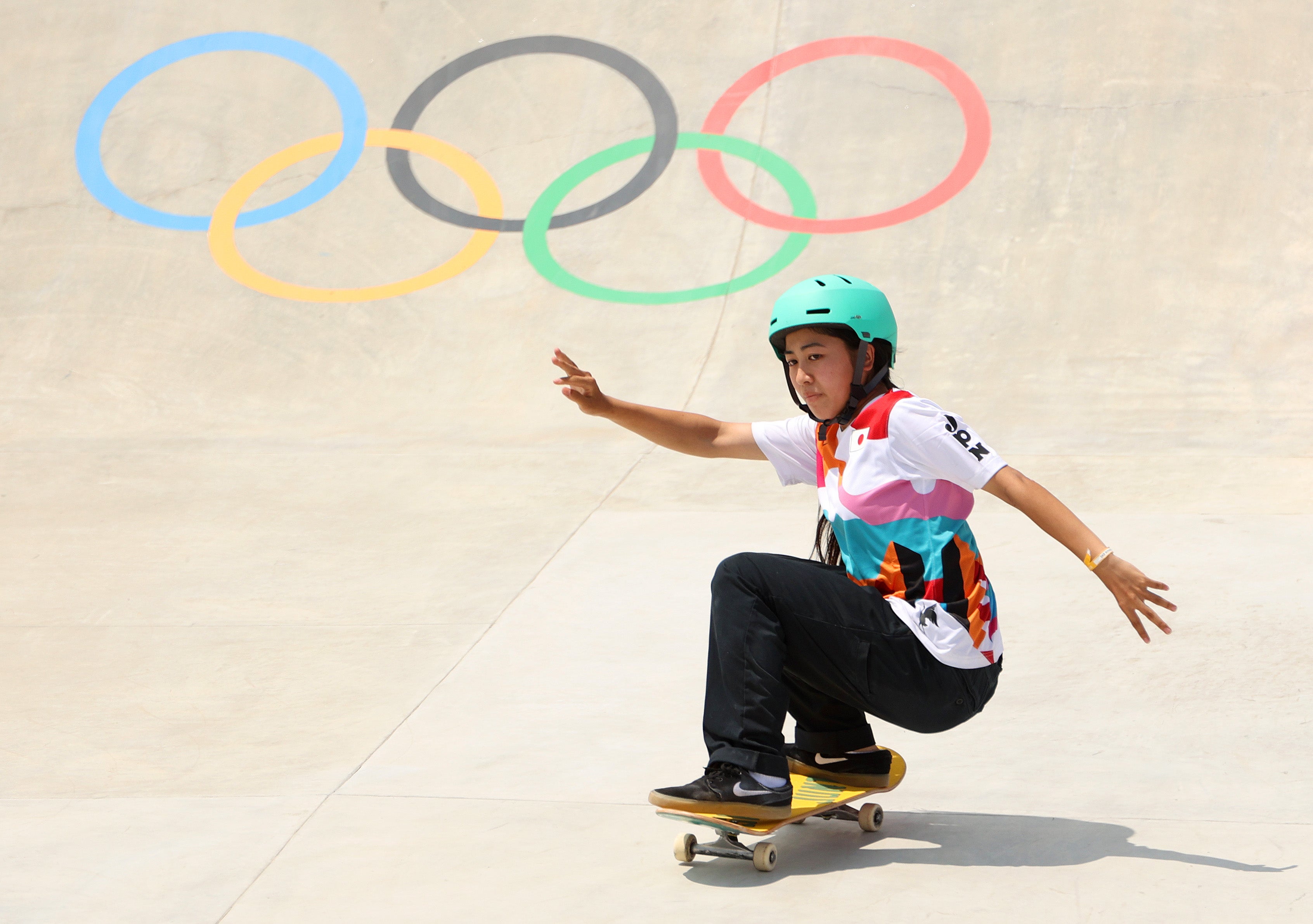Tokyo Olympics: Sport must confront gender debate after Laurel Hubbard’s brief moment in the spotlight
Laurel Hubbard competing in the women’s +87kg weightlifting final
As Laurel Hubbard entered the stage, the music stopped and the auditorium fell silent. She chalked her hands and clapped up a plume of dust. Then she closed her eyes.
Perhaps she was blocking out the glare. There were no fans in Tokyo’s International Forum but the bottom tier must have been a quarter full with reporters spilling out into the stalls and photographers’ lenses trained from every angle. Hubbard has tried desperately to avoid the spotlight over these past few months, so perhaps it was no surprise that when it finally found her she didn’t want to look.
She squatted low and pulled the 120kg bar up over her head. She has been held up as many things – icon, activist, even cheat – but all she’s ever really wanted is to be an athlete. “I’m not here to change the world,” she once said, “I just want to be me and do what I do.”
As the gallery gawped, the bar began to sag in her arms and she toppled backwards in a joint-jarring heap. Twice more she tried and twice more she failed. After the final attempt she stood and smiled at her audience, making a heart with her hands, and with that the Olympics’ first openly transgender woman was gone.
In the end it didn’t feel particularly historic, but then perhaps it was better this way. The world would not have allowed Hubbard to be an Olympic champion, not in the way her dreams played out anyway.
Recommended
“I’d like to thank the New Zealand Olympic Committee, they have supported me through what have been quite difficult times,” she said in a statement. “I know that my participation at these Games has not been entirely without controversy but they have been just so wonderful and I’m so grateful to them. The supporters in New Zealand have given me so much and have been beyond astonishing.”
Sport must now confront its relationship with gender. For a long time sport has been divided into two categories of men and women, so that women who do not have the physiological advantages of male puberty might compete on an equal footing with one another. But the reality is that not every athlete identifies with or fits neatly into those boxes. At the same time, non-transgender women raise concerns about fairness after more than half a century fighting for a proper platform in sport alongside men.
It is a complex picture, and anyone with a granite opinion on the subject of gender in sport either does not understand the nuance or is not willing to try. The one thing which everyone can agree on is that the current system is a mess. There is too much inconsistency: Hubbard took testosterone-suppressants which allowed her to compete in weightlifting but other events would not have accepted her because she transitioned within the last 10 years.
Meanwhile athletes with differences in sex development (DSD) do not know whether they are coming or going. Caster Semenya was blocked from defending her 800m title but was allowed to try for the 5000m, a distance not subject to new testosterone rules. She failed to qualify and has effectively been forced out of the Olympics for good.
Then there is the 18-year-old Christine Mboma, who was not allowed to run the 400m here in Tokyo due to DSD regulations but competed in the 200m on Monday because, again, it is not subject to the same rules. She ran brilliantly, qualifying for the final. Her rivals will understandably argue that if she has an unacceptable physiological advantage in the 400m, she must surely have one over 200 too. Mboma might well argue that none of this is her fault; that she is a female athlete who just wants to run.
It is this muddle that sport’s governing bodies must solve. Solutions are not easy or obvious but they must include trans people and recognise them as athletes. An ‘open’ category has been mooted but that would bring its own challenges, not least for athletes living in places where the transgender community and people with DSD are persecuted. The Olympics’ medical director Richard Budgett admits that the current piecemeal system is “outdated”, and by the next Games there are likely to be a whole new raft of rules.
Whether or not they include Hubbard, she might not be back; she never wanted the spotlight anyway. But if her fleeting Olympic moment showed someone, somewhere, that sport can be for people like them too, then it was not for waste.
Source: Read Full Article


